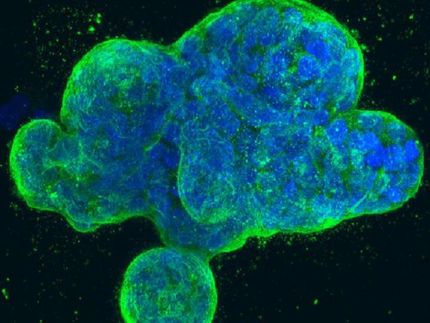UF oncologists fight leukemia with two-pronged therapy, clinical trials to start within months
Advertisement
A new therapy mounts a double-barreled attack on leukemia, targeting not just the cancer cells but also the environment in which those cells live and grow, University of Florida researchers report. Like striking an enemy camp directly as well as cutting off its source of food and other resources, the agent, called Oxi4503, poisons leukemia cells and destroys the blood vessels that supply them with oxygen and nutrients. Use of the treatment in mouse models of acute myelogenous leukemia, or AML, is described in the journal Blood. The researchers plan human tests of the drug at Shands at UF later this year.
“We’ve identified a new tool to dissect out the specifics of the relationship between leukemia cells and the blood vessels that supply them,” said Christopher Cogle, M.D., the UF College of Medicine oncologist who is senior author of the paper and a member of the UF Shands Cancer Center. “What we are offering is a brand new treatment by a very different mechanism to people who desperately need something new.”
Many treatments and studies focus on killing cancer cells, but very few target the microenvironment in which those cells grow. That means paying attention to blood vessels, bone marrow, growth factors and cell-to-cell interaction and binding.
Existing therapies that destroy blood vessels do so by targeting a growth factor called VEGF-A, but they are not effective long term at eliminating leukemia. To try to find a strategy that attacked multiple targets, the researchers tested Oxi4503, a novel blood vessel-disrupting agent.
In mouse models, Oxi4503 killed leukemia cells in addition to destroying the blood vessels that fed and nurtured them.
“It is very exciting to find one drug that can target both the leukemic cell and the endothelium to diminish the progression of leukemias — those people who fail chemotherapy, early or late, could be treated with this drug to see whether they respond,” said Shahin Rafii, M.D., a Howard Hughes Medical Institute Investigator and director of the Ansary Stem Cell Institute at Weill Cornell Medical College, who showed that leukemia cells are dependent on activated bone marrow blood vessels for survival and proliferation. Rafii is not affiliated with the UF study.
After Oxi4503 treatment, however, the researchers found that a thin layer of viable tumor tissue remained that was fed by newly formed vessels. The cells supplied by those vessels showed increased expression of a growth factor, as is often found in oxygen-deficient areas. To disrupt this secondary formation of blood vessels, the researchers blocked the growth factor VEGF by administering an antibody called bevacizumab after the blood vessel-destroying agent OXi4503. The combined approach led to enhanced leukemia regression.























































